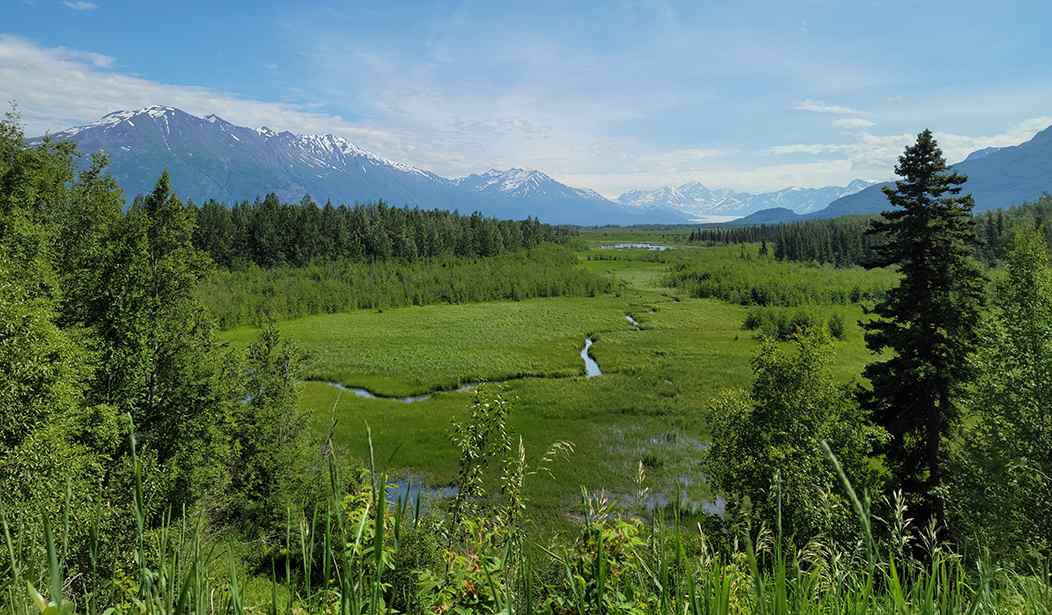Alaska is an interesting place for many reasons, not the least of which is politics.
As far as presidential politics go, the Great Land is a red state; we last sent our whopping 3 electoral votes to a Democrat in the state's second presidential election in 1964. But we are represented in the House of Representatives by a Democrat, due in large part to the vagaries of ranked-choice voting. And like many states, Alaska is divided between red and blue areas.
Much of the eastern part of the state as well as the Matanuska-Susitna Borough are strongly Republican, while the remote villages, the Unorganized Borough, and the city of Anchorage as well as the capital in Juneau trending towards Democrats. Alaska is also peopled with some of the more independent-minded you're liable to run across.
What to Look For - POTUS
As far as the presidential election, well, Alaska will go for Donald Trump and JD Vance. Any Democrat ambitions of flipping Alaska blue are the stuff of fever dreams. There isn't a great deal of presidential polling done in Alaska, in no small part because of our history as well as Alaska's only having three electoral votes to offer. Several Alaska Survey Research polls taken in September and October have Donald Trump leading Kamala Harris by anywhere from 7 to 10 points.
So unless something unbelievably unexpected happens, Donald Trump and JD Vance will carry Alaska. But two other electoral contests in Alaska will be much closer: Our at-large House of Representatives seat, and a ballot measure to repeal ranked-choice voting (RCV.)
What to Look For - The At-Large House Seat
The incumbent, Democrat Mary Peltola, faces a challenge from Republican Nick Begich III, the latest in a long line of political Begiches in Alaska politicians; however, Nick Begich is a Republican rather than a Democrat as most of his political relatives, and he has spent much of his adult life in the private sector rather than in politics.
Mary Peltola, the first Alaska Native to have served in Congress, was originally sent to Congress in a special election to replace the then-recently-deceased Republican Don Young, who had represented Alaska for several decades. In 2022, Mary Peltola faced not only Begich but also Alaska's former Governor Sarah Palin; Peltola's success in that election is generally attributed to the complicated and confusing nature of the RCV system as well as her being the only Democrat facing two Republicans.
This year, however, Nick Begich III is the only Republican on the ballot.
What scant polling there is on this race has Nick Begich III maintaining a narrow lead, of 4 to 5 percent. Bear in mind that if neither candidate breaks 50 percent on the first ballot count, then the RCV system kicks in and we may not know the results until at least November 20th.
What to Look For - Ballot Measure 2, Repeal of Ranked-Choice Voting
This is the real meat of the election for Alaska this year. Ballot Measure 2 reads, simply:
An Act Restoring Political Party Primaries and Single-Choice General Elections
This act would get rid of open primary elections and ranked-choice general elections.
It would bring back political party primaries and single-choice general elections. Elections will occur exactly as they did before a previous ballot measure changed the election laws in 2022. In the primary election, voters will choose a party’s ballot. They will vote for one candidate and the winning candidate will be the party’s nominee. In the general election, voters will select one candidate. The candidate with the most votes will win.
This act would also bring back party petitions, special runoff elections, and other processes in place before 2022. It would put all election laws, except campaign finance laws, back the way they were before 2022.
Should this initiative become law?
Since this is a simple up or down vote, we should know the results by Wednesday. (I voted Yes.)
Why is this significant? Seven states, Arizona, Colorado, Idaho, Missouri, Montana, Nevada, and Oregon, have ballot measures in this election to approve RCV for their elections, but Alaska is voting on a repeal of RCV. There is a very real problem with this system, indeed with any open-primary system, in that it does not allow Republicans or Democrats to select their own candidates to represent them in an election without outside interference.
While the Constitution is mute on the matter, and while state legislatures have broad powers over how elections are managed, it would seem to make good sense that Republicans choose the Republican candidates and Democrats choose the Democratic candidate. Any other way is muddling in the primary process.
We will be bringing you updates on Alaska's particulars as well as all of the battleground states on Election Night as results come in. If you haven't already, sign up for a VIP account, which will give you access to our live blogging of the election night action. A Gold account gets you access to all of the Townhall media sites, and a Platinum membership gives you all that as well as a host of feature-length films and access to our swag shop. Use promo code SAVEAMERICA for a 50% discount. I was a Gold member long before I was a contributor here at RedState - trust me, it's worth it.













Join the conversation as a VIP Member